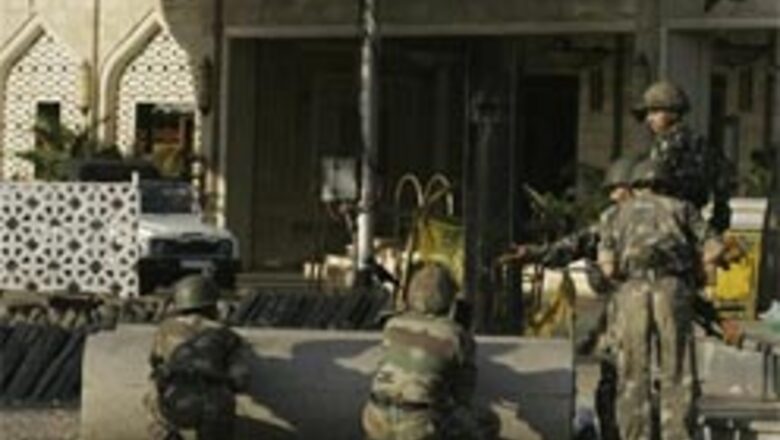
views
New Delhi: Home Minister Shivraj Patil had warned of terror groups using the sea route to strike at vital installations in India two years ago but nothing much seems to have done about it.
In his annual address to police chiefs in November 2006, Patil detailed the new forms of terror that the security establishment had to contend with and pointed out to groups using “the sea route to infiltrate India”.
Exactly two years later, the country's most audacious terror attack in Mumbai began Wednesday night when a group of men carrying a huge quantity of arms and ammunition got off at the Gateway of India jetty, Mumbai's most identifiable landmark, and literally crossed the road to begin the night of mayhem.
After having alighted at the jetty, the assailants went about their task commandeering vehicles to attack the Chhatrapati Shivaji railway station, the Leopold café and enter the Taj and the Oberoi Trident hotels where they continue to hold tourists as hostages.
At least 101 people have been killed and 250 injured since Wednesday night.
Underlying the dangers of access into the country through the sea route, Patil had said: "A word on coastal and maritime security. Our coastal areas are coming under increased threat from terrorist groups, which have decided to use the sea route to infiltrate into India. They also plan to induct arms and ammunition through the sea routes."
Patil had also said that terrorists were planning to occupy uninhibited islands off the country's coastline to use them as launching pad for terror strikes on oil refineries in coastal areas.
"We understand they (terrorists) have been collecting information regarding location of various refineries on or near the Indian coastline,” he said.
“Some Lashkar-e-Toiba (LeT) operatives are also being trained specifically for sabotage of oil installations. There are plans to occupy some uninhabited islands and use them as bases for launching operations on the Indian coast."
In his address, Patil had also talked about the proposed government steps to ward off terror strikes through sea routes.
“In view of the threat, the government has asked the coastal states to establish marine police stations and has sanctioned Rs.4 billion for establishing the infrastructure, purchase of boats."
Patil went one step ahead and said even the country's atomic power plants had become "highly vulnerable" to terror strikes after the India-US nuclear energy deal.
"Our critical infrastructure faces a serious threat from terrorists. In view of the recent Indo-US Agreement on Civil Nuclear Energy Cooperation, our atomic power plants have become highly vulnerable," he said.
"Similarly, installations of the oil and natural gas sector, defence, communications and IT sector are equally vulnerable. There are reports to indicate that some of our multi-purpose projects and shipyards continue to be targets of terrorist groups."
Shivraj Patil has said state-level committees will be set-up to tackle terror. He however clarified that this time there was no information on the attacks and the route which the terrorists would take - the sea route or the land route.




















Comments
0 comment